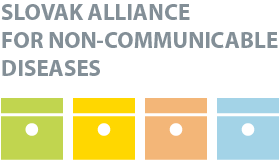—
HPI Network > HPI - Health Policy Institute > Health System in Slovakia > 1. Introduction > 1.3 Political context
1.3 Political context
Wednesday, 04. May 2011, 21:11 — HPI
| << PREVIOUS
1.2 Economic context |
Introduction – Organization – Financing – Resources – Provision – Reforms – Assessment – Conclusions – Appendices |
NEXT >>
1.4 Health status |
Slovakia is a parliamentary democracy with separation of legislative, judicial and executive powers. Its unicameral Parliament consists of 150 members. They are elected by proportional representation for a four-year period. If a political party receives at least 5% of the electoral vote, it may receive seats in Parliament. The president is the Head of State, with significantly restricted legislative power. He is elected in direct two-round elections by the people. Presidential elections and elections for self-governing regions last took place in 2009. Parliamentary elections and local government elections last took place in 2010.
Political developments since the late 1980s have been quite turbulent. They include the end of the communist era (1989), the creation of an independent Slovak state (1993), and the establishment of a democratic state. Reform periods with less state control have alternated with periods of stronger state intervention. A wide range of political parties is active in Slovak politics. In addition to the standard political parties, some parties for Hungarian minority voters play an important role, accounting for approximately 10% of the votes. Since the last parliamentary elections in 2010, the party Direction – Social Democracy (Smer – Socialna demokracia) has the strongest representation in Parliament (62 seats). However, it could not gain a majority and therefore a centre-right coalition government was formed by four smaller liberal and conservative parties: the Slovak Christian and Democratic Union – Democratic Party (Slovenská kresťanská a demokratická únia – Demokratická strana SDKÚ-DS, 28 seats), the liberal Freedom and Solidarity (Sloboda a Solidarita SaS, 22 seats), the Christian Democratic Movement (Kresťanskodemokratické hnutie KDH, 15 seats) and the party of Hungarian–Slovak understanding Bridge (Most–Híd, 14 seats). The smallest party in Parliament is the Slovak National Party (Slovenská národná strana SNS, 9 seats).
In the period 2000–2005, some competences of the central government were shifted to regional and local government level. Competences in legislation and taxes remained more or less centralized. The self-governing regions are responsible for social, economic and cultural development. Furthermore, they are involved in environmental protection, create conditions for the development of education (mainly in secondary schools), coordinate development of tourism and care for adolescents. The municipalities have competences in areas such as the local road network, environmental issues, water management, landscape planning, local development, housing, schools, social institutions, emergency rooms, some hospitals, and local taxes.
Important interest groups in Slovakia include the Federation of Employers’ Associations of Slovakia, the National Union of Employers, the Association of Towns and Municipalities of Slovakia, and the Confederation of Trade Unions. During the economic transformation, the social dialogue between representatives of employers and employees was in crisis. Trade union activities declined and organizations representing employers and employees were becoming marginalized. The previous government of 2002–2006 leaned towards the trade unions and granted some of their requests (for example, minimum wage growth, stronger status for unions).
The state’s institutional framework was influenced by the European integration process. On 1 January 2009 Slovakia joined the euro. In addition, Slovakia is a member of various other global and regional organizations (including the World Trade Organization, WHO, the International Monetary Fund [IMF] and the Council of Europe). Slovakia has ratified important international agreements related to human rights as well as children’s rights (Convention on the Rights of the Child, European Convention on Human Rights and so on).
According to the 2008 Freedom House report, Slovakia is a free country (listed in the “free” category). The Economist Intelligence Unit rated Slovakia in 2008 as a flawed democracy. According to the EU, Slovakia ranks relatively low in political culture (only 5 points out of 10). The election process and pluralism has favourable rates (9.58 points out of 10). Corruption has been a long-standing problem in Slovakia. According to Transparency International, Slovakia ranked 56th among 180 countries in the 2009 Corruption Perception Index – with a rating of 4.5 (0 being the worst, 10 being ideal); this had improved from 3.9 in 1998 to 4.9 in 2007. Transparency International has been critical of Slovakia in terms of insufficient government efforts to deal with corruption.
News
The amendment of the Decree on emergency medical service
Health insurance companies returned over 400 thousand €
The HCSA received 1,647 complaints last year
A half million people will earn more
Most of public limited companies ended in the black
Debt of hospitals on premiums has grown to nearly € 105 MM
Slovak health care may miss € 250 million next year
Profits of HIC amounted to € 69 mil. last year
Owners of Dôvera paid out money but did not paid taxes
Like us on Facebook!
Our analyses
- 10 Years of Health Care Reform
- New University Hospital in Bratislava
- Understanding informal patient payments in Kosovo’s healthcare system
- Analysis of waiting times 2013
- Health Policy Basic Frameworks 2014-2016
- Analysis of informal payments in the health sector in Slovakia
- Serbia: Brief health system review
developed by enscope, s.r.o.
